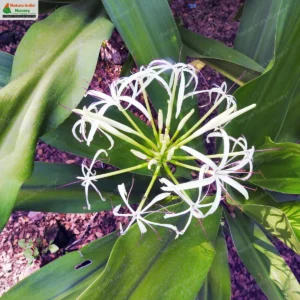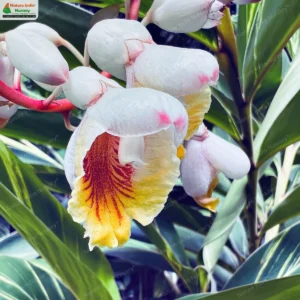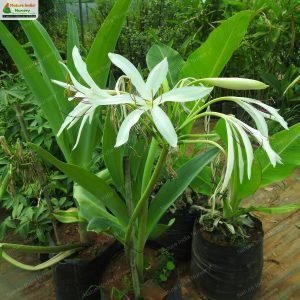Ocimum africanum, commonly known as African Basil, is an aromatic herb native to tropical and subtropical regions of Africa. It is closely related to Ocimum basilicum (sweet basil) but is distinct in its flavor profile and growth habit. Ocimum africanum is widely grown in various parts of Africa, where its leaves are used for culinary purposes, as well as in traditional medicine. The plant typically reaches a height of about 30 to 60 cm and produces small white or purple flowers during the summer months.
The leaves of Ocimum africanum are somewhat smaller and more elongated compared to those of sweet basil. The plant has a strong, spicy aroma and flavor, with hints of anise and clove. It is often used in African cuisines to flavor meats, stews, and soups, and is also used to make herbal teas.
Habitat
Ocimum africanum thrives in warm, sunny climates and is typically found in areas with well-drained, fertile soil. It grows naturally in tropical and subtropical regions, preferring temperatures between 20°C to 30°C. In regions outside of its native habitat, it can be successfully grown in gardens or containers, provided it receives ample sunlight and warmth.
Planting and Care
-
Light: Prefers full sunlight but can tolerate partial shade.
-
Soil: Thrives in well-draining, fertile, and slightly acidic to neutral soil.
-
Watering: Requires regular watering, ensuring the soil stays moist but not waterlogged. It is important to avoid overwatering, as this can lead to root rot.
-
Maintenance: Regular pruning of spent flowers and stems will promote a bushier plant and more leaf production. It can also be propagated easily from seeds or cuttings.
Additional Information
-
Ocimum africanum is used both for culinary and medicinal purposes. The leaves are rich in essential oils, which have antimicrobial, anti-inflammatory, and antioxidant properties. In traditional medicine, the herb has been used to treat digestive issues, headaches, and respiratory ailments.
-
The plant is commonly used in African herbal teas, and its leaves can be added fresh or dried to various dishes for flavor.
-
Like other basils, Ocimum africanum is easy to grow and maintain, making it a great addition to herb gardens, especially in tropical and subtropical regions.
Note: This basil variety is more resilient in tropical climates but should be protected from frost in cooler areas.




